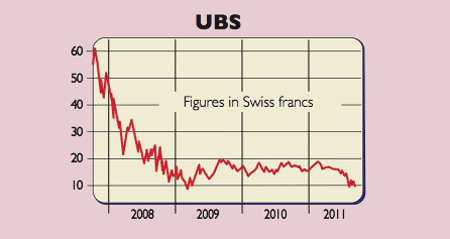
Kweku Adoboli, a London-based employee, was arrested last week after the discovery of his unauthorised trades, which are said to have amounted to large, unhedged bets on major stock indices. Adoboli had allegedly pretended to offset his bets with positions in exchange-traded funds (ETFs). Like Société Générale’s rogue trader Jerome Kerviel in 2008, Adoboli worked on the ‘Delta One’ desk, which deals with securities tracking underlying assets, such as swaps or ETFs.
What the commentators said
UBS “seems to have stepped on just about every mine the treachery of financial markets has to offer”, said Jeremy Warner in The Daily Telegraph. It got its fingers burned in 1998 with Long Term Capital Management.
Then, having been late to the party, it rushed into the US mortgage market in the credit boom. That “didn’t just bust the bank, it almost bust the Swiss government”, which had to provide billions in bail-outs. Official reports showed that senior managers and supervisors had no idea of the huge positions the bank had been taking.
“The mind boggles”, said Simon Nixon in The Wall Street Journal, as to how UBS could lose 28 times its daily value-at-risk (a measure of the total trading losses a bank is exposed to in a day), especially when it had supposedly instituted new risk-management practices. It seems that Oswald Gruebel, the chief executive over the past two years, has failed “fundamentally to reform the accident-prone nature of UBS”, said John Gapper on FT.com. Talk about a “rogue bank”.